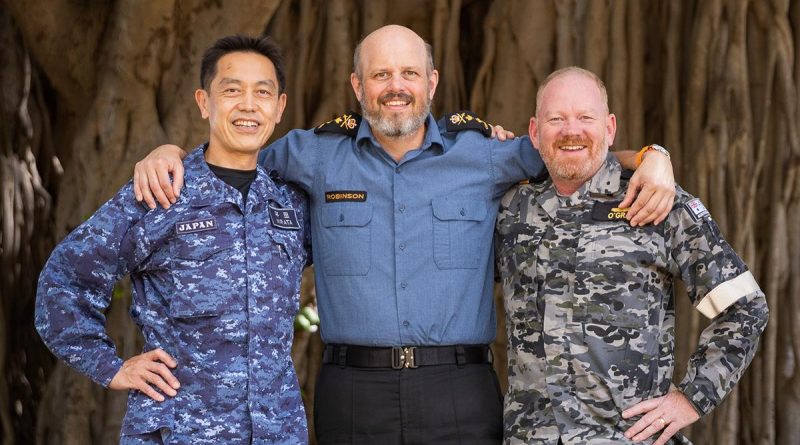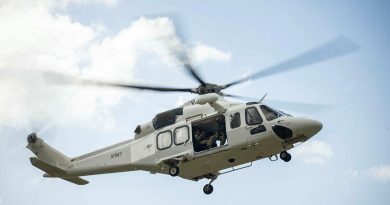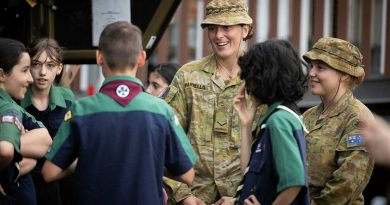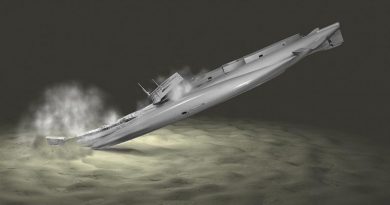The power of friendship

Eight years ago, 51 naval officers from 50 countries walked through the gates of the US Naval War College at Rhode Island as strangers and 11 months later were long-term friends.
CAPTION: Japan Maritime Self-Defense Force Rear Admiral Toshiyuki Hirata, left, Royal Canadian Navy Rear Admiral Christopher Robinson and Royal Australian Navy Commodore Paul O’Grady. Story and photo by Leading Seaman Kylie Jagiello.
Three of those officers came back together in senior leadership and command positions for Exercise Rim of the Pacific (RIMPAC) 2022.
Rear Admiral Christopher Robinson from the Royal Canadian Navy, Rear Admiral Toshiyuki Hirata from the Japan Maritime Self-Defense Force and Commodore Paul O’Grady from the Royal Australian Navy attended the Naval Command College program, graduating in 2015.
Combined Force Maritime Component Commander Commodore O’Grady said having an established relationship helped expedite the professional relationship in the planning and execution of RIMPAC 2022.
“It made the force integration a lot easier, as well as personally and professionally satisfying,” Commodore O’Grady said.
“Our friendship was a powerful example for the junior leaders at RIMPAC to see how the relationships they build don’t just last for this exercise but endure and deepen over time.
“It showed that ‘capable adaptive partners’ is not just a mantra for four weeks, it’s an enduring thing.”
As the Deputy Commander Combined Task Force RIMPAC 2022, Royal Canadian Navy Rear Admiral Robinson said the closeness of their class was a result of the extra effort by the college staff.
“They had taken the time to memorise our biographies, pictures and family information. They greeted us and asked us those questions,” he said.
Last member of the RIMPAC trio, Japan Maritime Self-Defense Force Rear Admiral Hirata was Vice Commander Combined Task Force RIMPAC 2022.
“Because English isn’t my mother tongue, it helped working with my classmates as we understand each other,” he said.
“Friends are important, especially multinational friends. We need that as leaders, to understand dynamic situations. Our views may be domestic and sometimes we need an outside perspective.”
.
.

.
.





